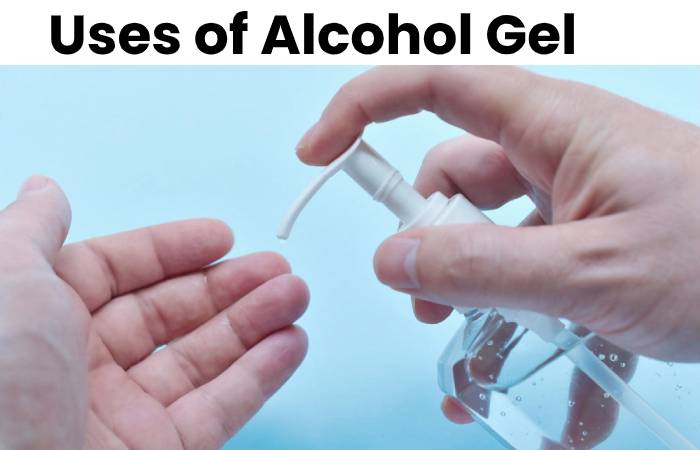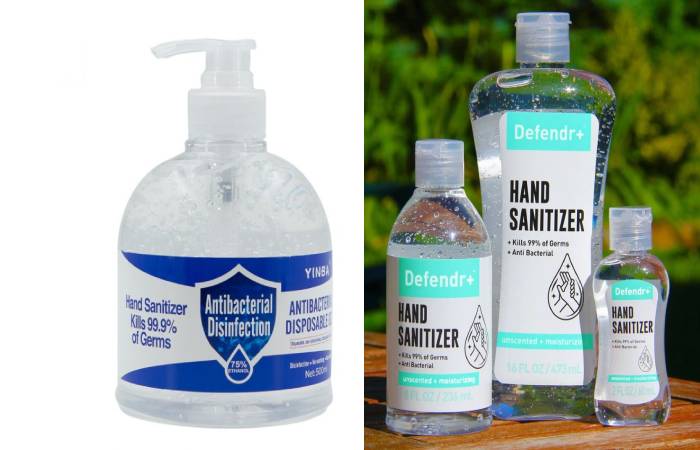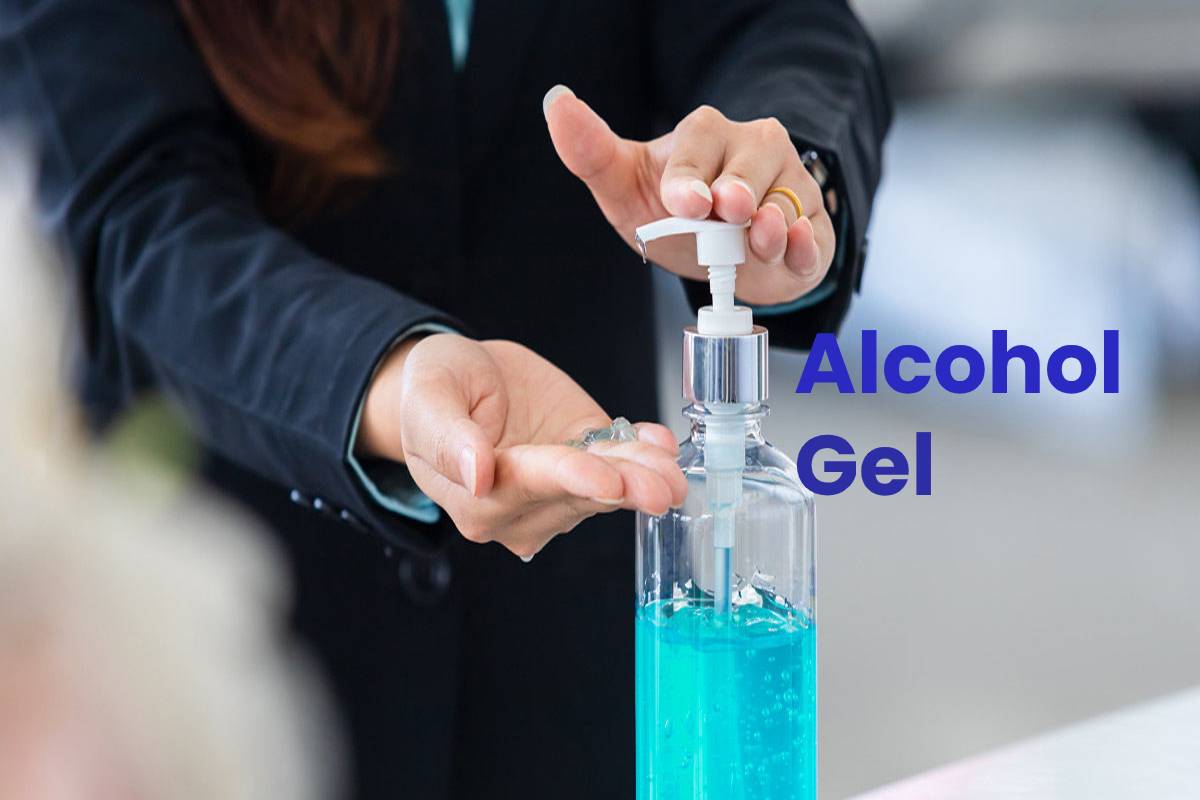Table of Contents
Alcohol Gel Definition
Alcohol gel or hydroalcoholic gel, gel disinfectant, alcohol gel, alcoholic gel, cleansing gel, or antibacterial gel products used to supplement the water and soap for washing hands.
What are the Uses of Alcohol Gel?

Alcohol gel is a product used to stop the spread of germs. The amount of alcohol in its composition varies between 60% and 85%, the most common amount being 70%.
Alcohol kills between 99.99% and 99.999% of bacteria in one minute, five. However, it does not act against spores of anaerobic bacteria. Hence hydrogen peroxide is added to the gel, which it does.
It is also an effective viricide and fungicide. It characterizes by the rapidity of the beginning of its action (about 15 sec). When the hands are not visibly dirty, the use of the gel to kill most bacteria.
To wash your hands with an alcohol-based hand sanitizer, the following:
- Apply the product in the palm of one hand.
- Rub your hands together.
- Rub the product on all surfaces of hands and fingers until dry.
For Muslims, alcohol is considered haram (prohibited). For this reason, some of them do not use it. However, according to the Muslim doctor Rajab Abu Mleeh, gel alcohol is a medicine, and therefore, it is halal (acceptable).
He believes that avoiding disease is among the laws that Muslims have to follow, and that is why they are allowed to touch alcohol even if it is prohibited.
What are the Types of Alcohol Gel?

There are two types of alcohol gels:
1. Antiseptics (or Disinfectants)
- They are biocides and, therefore, must comply with Regulation (EU) 528/2012.
- Its to eliminate microorganisms from the skin to avoid their possible transmission from healthy carriers to other individuals who, due to their characteristics, injuries, or physical condition, could be infected; that is, they disinfect healthy skin.
- There are two classes: bactericidal (prevent bacterial infections) or viricidal (effective against viruses).
- The documentation related to the product must be submitted, among which the one related to the efficacy of the biocidal activity against the target organisms stands out.
- The virucidal efficacy of antiseptic gels must demonstrate following what specify in the UNE-EN 14476: 2014 + A1: 2015 Standard: Antiseptics and chemical disinfectants.
- Its list of antiseptics for healthy skin that has shown efficacy against viruses following this standard.
2. Sanitizers
- They are cosmetics intended to cleanse the skin and comply with Regulation (EC) 1223/2009.
- As such, they cannot indicate that they have a disinfecting, antiseptic, or virucidal effect.
- A company that wants to commercialize a product of this type must comply with the regulation, demonstrating an expert’s evaluation that it is safe and ensures it produces under acceptable manufacturing practices.
- Stampa, which brings together 90% of the sector’s companies, manufactures and distributes perfumes, cosmetics, and personal care products.
- Ensures that hydroalcoholic gels following this regulation are formulated mainly with an ethanol content of 70% or superior,
- It is added emollients and substances that improve efficiency and tolerance to prevent skin damage and protect it.
- Also, community pharmacies can formulate hydroalcoholic gels as cosmetics.
- It should not claim the actions of sanitary products or biocides for human hygiene, such as disinfectant, antiseptic, bactericidal, fungicidal, Yeasturicidal, mycobactericidal stories, virucidal, etc.
- Therefore, we are dealing with products that meet quality criteria and are made by a health professional.
- If you also want to know if it is effective against the coronavirus, access the antiseptics list for healthy skin.
- You will not have to concern about whether or not the alcohol percentage mark on the label; to use it correctly.
Effectiveness of Alcohol Gel
- Rubbing alcohol kills many types of bacteria, including those with resistance to antibiotics and tuberculosis ( Mycobacterium tuberculosis ).
- Alcohol has antiviral activity and can effectively “kill” enveloped viruses such as the flu, the common cold, or HIV.
- It placed hand sanitizer dispensers in the office and train workers on proper use, lowered absenteeism by 21%.
- In a primary school, absenteeism had decreased by 51%, and in a university dormitory, it fell by 43%.
- It using the gel to stop cold is more effective than washing your hands.
- Alcohol rubs are about 100 times more effective against viruses than any other way of washing your hands.
- Isopropyl Alcohol instantly kills 99.99% or more of non-spore-forming bacteria in less than 30 seconds.
- Alcohol kills microorganisms that cause disease, along with other organisms that do not.
- However, the body replenishes “good” germs quickly, often moving them from the arms, where there are fewer harmful germs.
- In hospitals, the optimal amount of alcohol is between 70% and 95%.
1. Control
- Gels containing alcohol can burn quickly, as it is flammable. For this reason, most fire departments recommend that sanitizer gel store away from exposure to fire.
- On the other hand, some alcohol gels cannot inflame due to their high content of water or other hydrating agents.
- In case of approaching a flame, the alcohol gel may remain lit even though no love is visible.
- Therefore paper or combustible elements should not bring near, and care must take when using and handling them near the fire.
- There have been drunken cases after ingestion in some prisons and hospitals, so they prohibit some of these establishments.
- Contrary to some popular beliefs, gel causes less visible skin irritations than detergent.
2. Production
- It 2020 receive renewed interest due to its shortage during the covid-19 pandemic.
- Many perfume manufacturers went from producing their products to making them.
- It meets demand. Some distilleries began to use their alcohol production to manufacture it directly.
- It notes that there are dangers in the home production of hydroalcoholic gel.
- Effectiveness can be poor due to low concentrations, low-quality products, unsterilized containers, water contamination by bacteria, and unsuitable processing conditions.
- With the use of the homemade gel, the hands could crack or bleed. Many homemade recipes are not practical and could be harmful.
What to Consider Before Buying an Alcohol Gel?
You will find hydroalcoholic gels in different establishments, such as supermarkets, and even in vending machines. But it will be in your pharmacy where they can advise you with truthful and accessible information on the product’s characteristics and its use. You can look at these aspects:
- Do you want disinfection or cleaning for your hands? Depending on the answer, you will choose an antiseptic or sanitizing gel.
- The texture doesn’t matter. It does not matter whether it is gel, solution, or foam, for example.
- These differences do not affect the efficacy. The optimal of one or the other will be contingent on the tastes of each person.
- Antiseptic gels should use on healthy skin, so avoid applying them to sensitive or damaged areas of the skin or mucous membranes. “In special cases, we can consult our pharmacist to help us choose the most appropriate product based on the characteristics of our skin,” says Irene Suárez.
- It emollients or moisturizers, like glycerin. The repeated use of gels can significantly affect people with dehydrated skin or dermal conditions. If they do not have those ingredients in their composition, the appearance of dryness or eczema is a favorite.
- Before using the product, please read the manufacturer’s instructions for use and use them correctly to ensure their effectiveness.
How to Apply Alcohol Gel?
Hydroalcoholic gels clean or disinfect, as long as they use correctly. It four premises must be taken into account, without forgetting that they are a complement to soap and water, as they do not replace it:
- Hands must be dry and free of dirt, as water reduces effectiveness and gels do not wash away dirt.
- Sufficient quantity of the product. The appropriate volume will be that which covers the surface of both hands.
- The minimum time. About 20-30 seconds or what the manufacturer indicates until they are dry.
- Rub all parts of the hands, as indicated here by the WHO.
Conclusion
Alcohol gels clean or disinfects, as long as they use correctly.
Alcohol kills between 99.99% and 99.999% of bacteria in one minute, although it does not act against anaerobic bacteria spores. Hence hydrogen peroxide adds to the gel.
Also Read: Kidney Disease – Definition, The 22 Best Foods for Patient, and More

